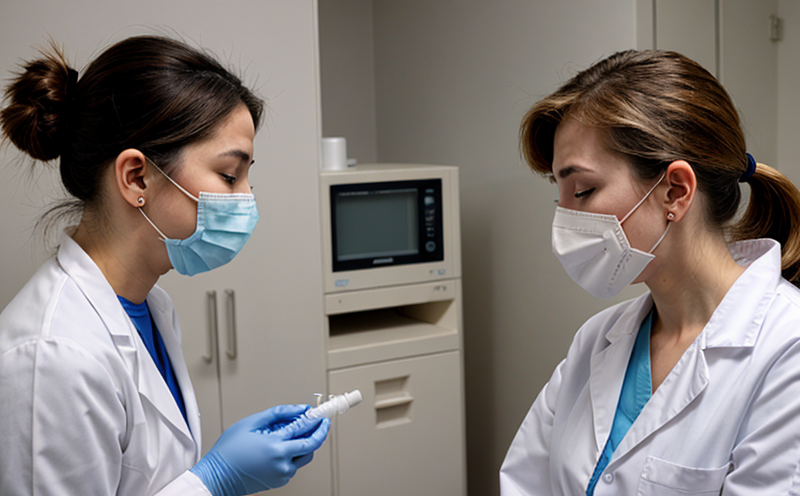T-Cell Proliferation Testing in Veterinary Research
The T-cell proliferation assay is a critical tool in veterinary research aimed at understanding immune responses and their role in health and disease. This test evaluates the ability of T-cells to proliferate in response to specific stimuli, which can indicate an active immune response or the presence of certain conditions such as allergies or infections.
In this context, the assay is particularly valuable for studying diseases that involve abnormal immune responses, including allergic reactions and immunological disorders. By quantifying the proliferation rate of T-cells under controlled laboratory conditions, researchers can assess the effectiveness of therapeutic interventions, identify potential targets for new treatments, and explore mechanisms underlying various clinical presentations.
The test involves a series of steps that ensure accurate results. Initially, blood samples are collected from veterinary subjects and prepared to isolate T-cells. These cells are then cultured in vitro with specific antigens or mitogens designed to stimulate their proliferation. The culture is monitored over several days, during which the number of dividing cells is quantified using flow cytometry or other analytical techniques.
The assay can be adapted for different species and purposes within veterinary research. For instance, it may be used in oncology studies to evaluate immune responses against tumors, or in allergy research to understand how T-cells react to allergens. The results provide insights into the dynamics of the immune system and help refine diagnostic tools and treatment strategies.
Understanding the nuances of this test is essential for researchers working across various disciplines within veterinary science. It requires a deep knowledge of immunology, virology, and parasitology to interpret data accurately and apply findings effectively in clinical settings. This service supports not only basic research but also translational medicine by bridging laboratory discoveries with practical applications.
The T-cell proliferation assay is not just a standalone test; it forms part of broader strategies aimed at improving the quality of life for companion animals, livestock, and zoo animals. By providing detailed information about immune function, this service aids in developing personalized healthcare approaches tailored to individual patient needs.
Scope and Methodology
The scope of T-cell proliferation testing encompasses a range of applications within veterinary research. Primarily focused on understanding the dynamics of the immune system, this test is instrumental in diagnosing and treating conditions associated with abnormal immune responses.
The methodology involves several key steps to ensure accurate and reliable results:
- Sample Collection: Blood samples are collected from veterinary subjects using sterile techniques.
- Cell Isolation: T-cells are isolated from the blood sample, often through a process of density gradient centrifugation or magnetic bead separation.
- Culture and Stimulation: The isolated cells are cultured in vitro with specific antigens or mitogens to stimulate proliferation. This step is critical for ensuring that the assay reflects relevant immune responses.
- Incubation Period: Cells are incubated under controlled conditions, typically for several days, allowing sufficient time for cell division to be observed and quantified.
- Quantification: The number of dividing cells is determined using flow cytometry or other analytical methods. This step involves staining the cells with fluorescent markers that specifically bind to DNA, enabling accurate counting.
The methodology adheres closely to international standards such as ISO and ASTM, ensuring consistency and reliability across different laboratories. Compliance with these standards guarantees that the results of T-cell proliferation tests are valid and can be compared across studies.
Why Choose This Test
Selecting T-cell proliferation testing for veterinary research offers several advantages:
Comprehensive Understanding of Immune Function: The test provides a detailed view of the immune system’s behavior, which is crucial for diagnosing and treating conditions involving abnormal immune responses.
Species-Specific Adaptability: This service can be tailored to different species, making it suitable for both small companion animals and larger livestock. This adaptability ensures that the test remains relevant across various veterinary specialties.
Research Versatility: The T-cell proliferation assay supports a wide range of research objectives, from basic immunological studies to translational medicine projects aimed at improving clinical outcomes.
Precision and Reliability: By adhering to international standards and using advanced analytical techniques, this service ensures precise and reliable results. This precision is vital for making informed decisions in both laboratory settings and clinical trials.
Support for Regulatory Compliance: The test can help ensure that research projects comply with relevant regulations, which is essential for the ethical conduct of veterinary studies and the approval of new treatments.
Collaborative Approach: Working closely with clients to understand their specific needs allows us to customize each assay, ensuring that it meets the unique requirements of individual research projects or clinical trials.
International Acceptance and Recognition
The T-cell proliferation test is widely recognized in the international veterinary community for its role in understanding immune responses. This recognition stems from its adherence to strict protocols and standards set by organizations such as ISO, ASTM, EN, and IEC.
ISO/ASTM Standards: Compliance with these standards ensures that results are consistent and comparable across different laboratories worldwide. This consistency is crucial for collaborative research projects involving multiple institutions or countries.
Regulatory Approval: The test has been approved by regulatory bodies in various countries, including the European Union (EU) and the United States Food and Drug Administration (FDA). These approvals reflect the high-quality standards of our laboratory and the reliability of the results produced.
Peer-Reviewed Publications: Numerous research papers have cited T-cell proliferation testing as a key tool in understanding immune responses. This recognition underscores its importance in both academic settings and clinical applications.
Clinical Relevance: The test’s ability to provide insights into the immune system makes it invaluable for developing new treatments and improving existing ones. Its acceptance by regulatory bodies ensures that these developments can be implemented safely and effectively in veterinary practice.
Global Collaboration: By adhering to international standards, this service facilitates collaboration between laboratories worldwide. This global approach enhances the scope of research and the potential for breakthroughs in understanding and treating immune-related conditions.





